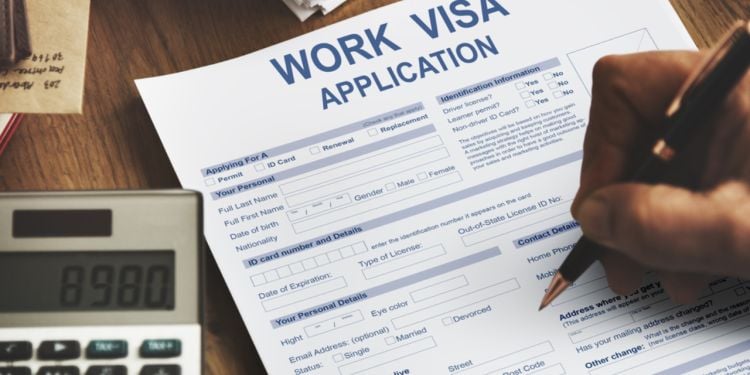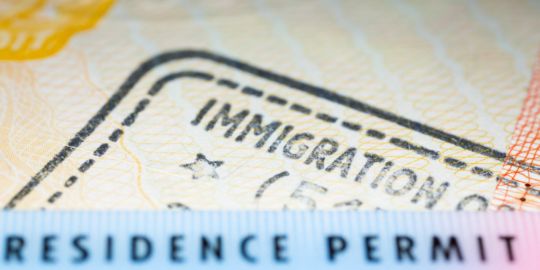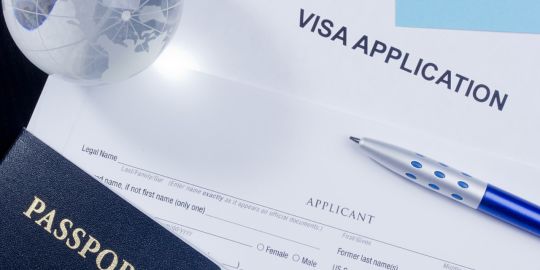The different types of work visas in the United Kingdom

If you're considering a long-term move to the UK, particularly for employment purposes, it is essential to understand the visa options available. The UK offers a variety of work visas, each with its own set of requirements and conditions. Here is what you should be aware of.
For EEA and EU citizens in the UK
EEA and EU citizens interested in working in the UK will be asked to get a work visa. Most workers not under the EU Settlement Scheme must go through the points-based immigration system to get the relevant work visa. You will be given a share code from your employer to show you have the right to work.
Attention:
The EU Settlement Scheme (EUSS) was created to provide EU, EEA, and Swiss citizens residing in the UK by December 31, 2020, along with their family members, an avenue to secure the necessary immigration status for continued living, working, and studying in the UK. The application deadline for individuals who were already residents in the UK by December 31, 2020, was June 30, 2021.
Good to know:
The above rules do not apply to Irish citizens.
Citizens outside the EEA and EU in the UK
Citizens from outside the EEA and EU are grouped in tiers as follows.
Skilled Worker Visa
To qualify for a work permit under this tier, you must have a valid job offer and reliable support from a local sponsor before your visa application process. Your employer, who is resident in the UK, must own a registered licence to sponsor you. If you want to bring your partner and children to the UK, you can apply for a dependent's visa, which will expire on the same date as yours. The Skilled Worker visa lasts for up to five years. You can apply for an extension multiple times, even with a different employer or position, as long as you meet the eligibility requirements. After completing five years of continuous employment in the United Kingdom, you can apply for a permanent residence visa in the UK.
International Agreement Visa
To qualify for this work permit, you must be contracted to do work covered in the UK by international law or treaty. You need a certificate of sponsorship from your employer to get this visa. Under this visa, you can do a second job on the Skilled Worker shortage occupation list or in the same sector as your main job for up to 20 hours per week. You can also study if it does not interfere with your main job.
Important:
The International Agreement Visa was previously known as the Temporary Worker – International Agreement Worker Visa (T5).
Youth Mobility Scheme
Under this scheme, citizens from Commonwealth countries like Japan, Canada, New Zealand, Australia, etc., can live and work for up to two years, including 12 months. Applicants must be aged between 18 and 30 and have the equivalent of £2,530 in savings.
The Youth Mobility Scheme allows applicants to work in most jobs, be self-employed, or set up their own company.
Important:
If you decide to set up your own business, your premises must be rented; you cannot have employees, and your equipment should not be worth more than £5,000.
Good to know:
Applicants under the Youth Mobility Scheme cannot bring in their family as part of the application, nor can they extend their stay.
Find more information here.
Health and Care Worker Visa
With a Health and Care Worker visa, you can practice with either the NHS, an NHS supplier, or adult social care. To be eligible for this visa, you must be a doctor, nurse, health professional, or adult social care professional and work for a Home-office-approved employer. The employer must be able and qualified to issue a “certificate of sponsorship”. This visa is valid for a maximum of five years and can be extended in case of job or employer changes. After the first five years under this visa, you can apply to settle permanently in the UK (i.e., indefinite leave to remain).
Good to know:
You do not have to pay for the Health Surcharge under this specific visa.
High Potential Individual Visa
This specific visa allows individuals to stay in the UK for at least two years. To be eligible, you must have been awarded a qualification from a recognised university within the last five years, and your qualification criteria must be equivalent to a UK bachelor's, postgraduate's, or Ph.D. degree. You can check out the list of eligible universities here. A High Potential Visa is non-extendable, meaning you must find an alternative route, such as a Skilled Worker Visa. Individuals are only eligible for this visa once and cannot have been previous holders of the Graduate visa.
Under this visa, you can job hunt, carry out self-employment, and volunteer. However, it will not allow you to work as a professional sportsperson or claim benefits.
Good to know:
This visa does not require a job offer, and you can apply from within and outside the UK.
Innovator Founder Visa
If you are looking to establish and manage your own business in the UK, consider applying for the Innovator Founder visa. This visa will allow you to stay in the UK for three years, with the possibility of extending or opting for settlement. To qualify for this visa, it is essential to demonstrate that your business embodies innovation, has growth potential, and is scalable. For applicants from outside the UK, the application fee costs £1,036 alongside the Healthcare Surcharge, which amounts to £624. Your knowledge of English will also be assessed when applying for the Innovator Founder visa.









